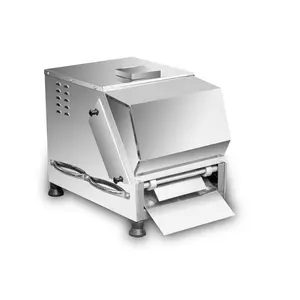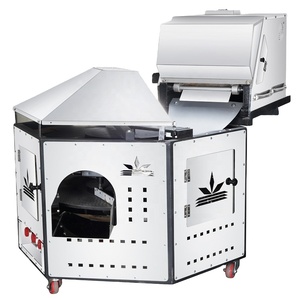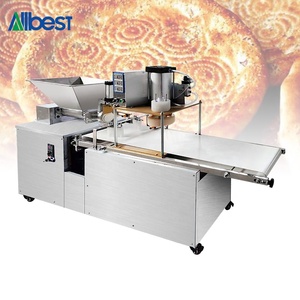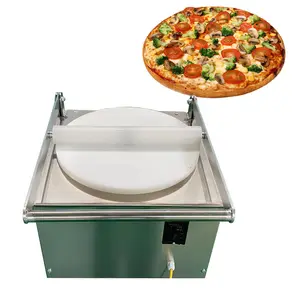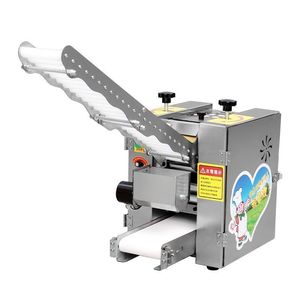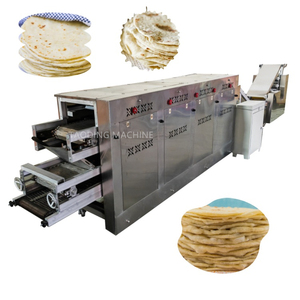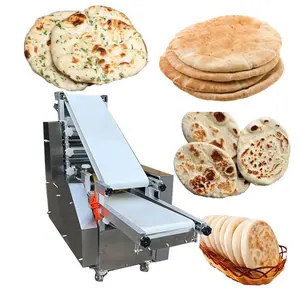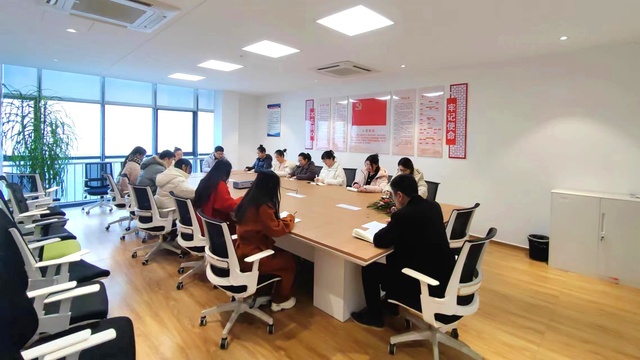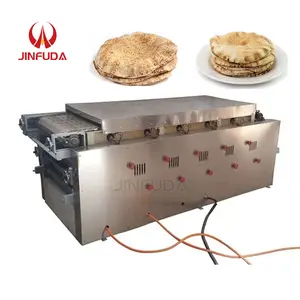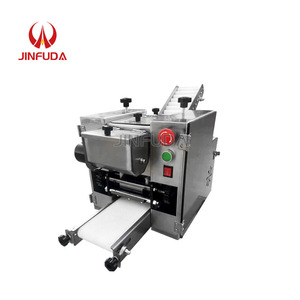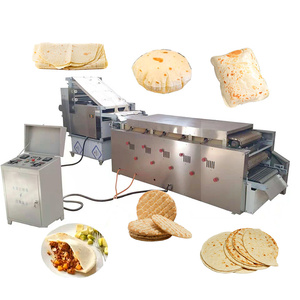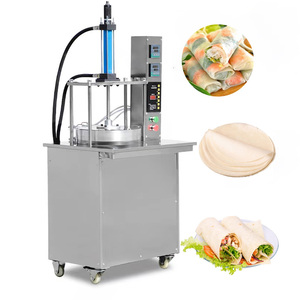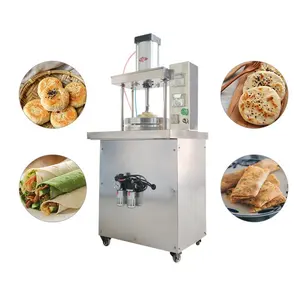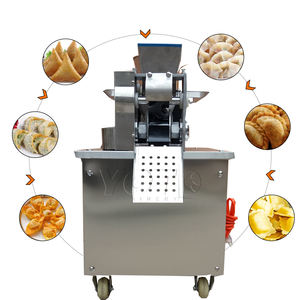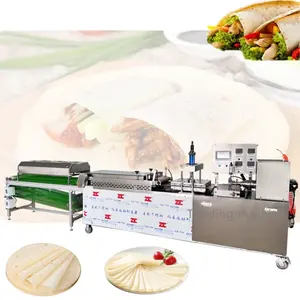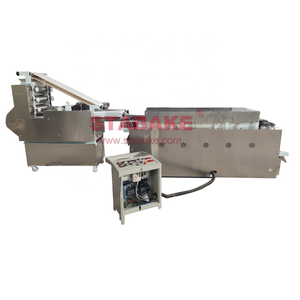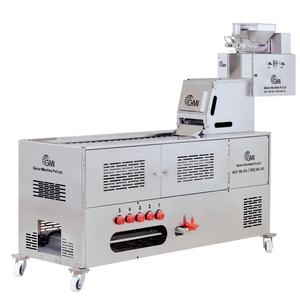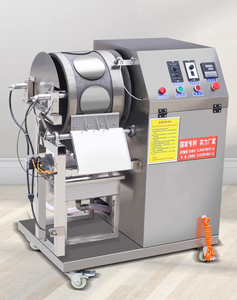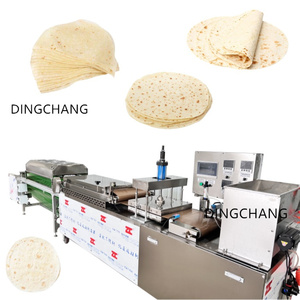Chapati Automatic Machine

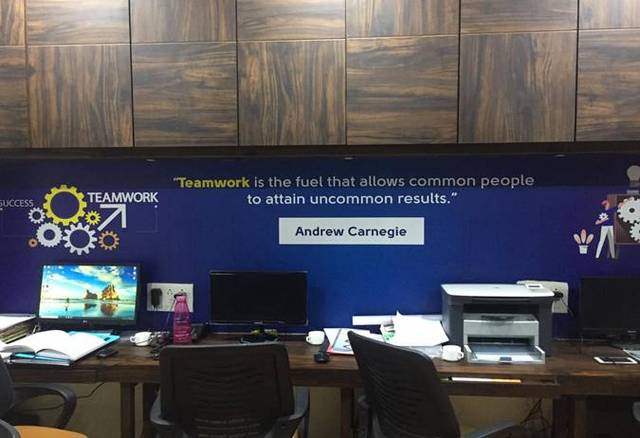
















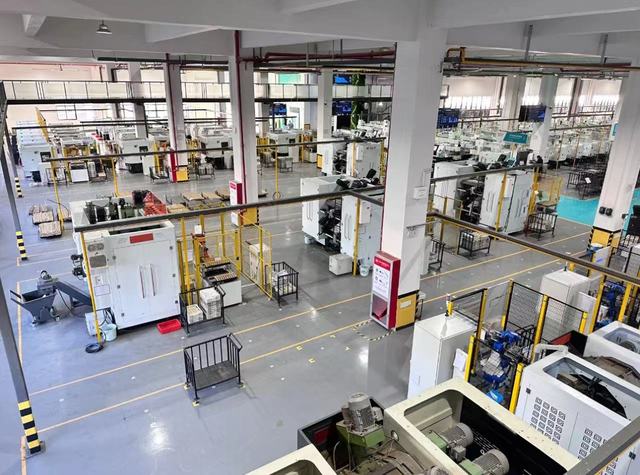





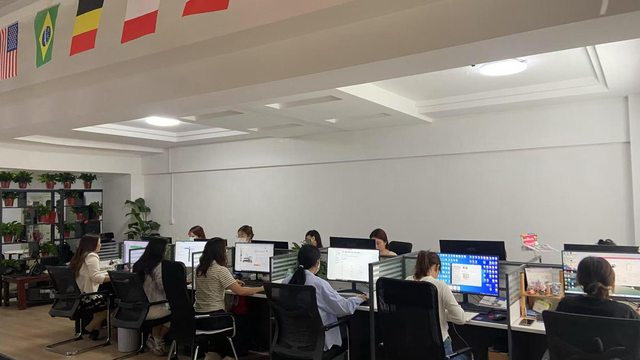



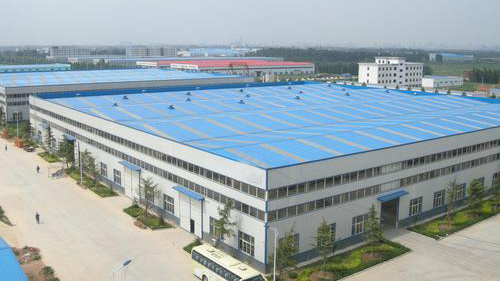




















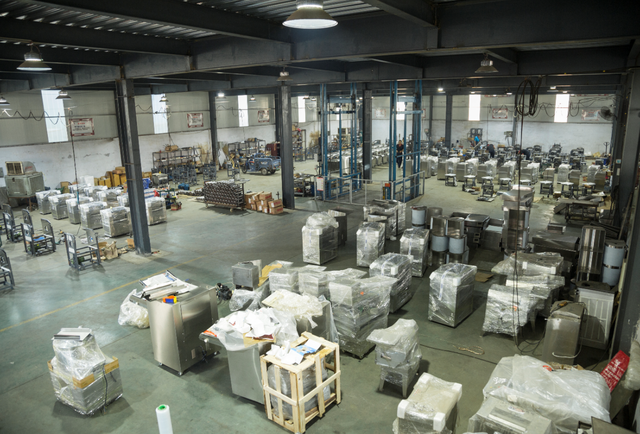



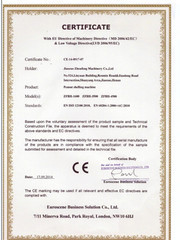




About chapati automatic machine
Where to Find Chapati Automatic Machine Suppliers?
China remains the dominant manufacturing hub for automatic chapati machines, with concentrated supplier clusters in Henan Province driving innovation and cost efficiency. This region hosts a high density of food processing equipment manufacturers leveraging integrated supply chains for motors, heating elements, and sheet metal fabrication. The proximity of component suppliers reduces lead times by up to 30% compared to isolated production bases, enabling rapid assembly and testing cycles.
These industrial ecosystems support both standardized and engineered-to-order models, with many facilities equipped for end-to-end production—from CNC cutting and bending to automated welding and final calibration. Buyers benefit from scalable output capacity, with some suppliers reporting monthly production volumes exceeding 500 units. Key advantages include competitive pricing due to lower labor and material costs, access to multi-language technical support, and established export logistics networks serving markets across South Asia, the Middle East, Africa, and North America.
How to Choose Chapati Automatic Machine Suppliers?
Effective supplier selection requires systematic evaluation across three critical dimensions:
Technical Capability Verification
Confirm that suppliers possess in-house engineering teams capable of delivering consistent dough handling, rolling, and cooking performance. Look for evidence of motor control systems (variable speed drives), temperature regulation accuracy (±5°C), and material compatibility with wheat, millet, and gluten-free flours. While formal certifications like CE or ISO 9001 are not universally present, their absence should trigger deeper due diligence into quality management practices.
Production Infrastructure Assessment
Evaluate operational scale through verifiable metrics:
- Facility size supporting dedicated assembly lines for different machine types (semi-automatic vs. fully automatic)
- In-house fabrication capabilities including laser cutting, press braking, and powder coating
- Capacity to customize diameter range (15–60 cm), output rate (up to 1,200 rotis/hour), and voltage specifications (110V/220V)
- Cross-reference online revenue indicators and reorder rates as proxies for market acceptance and reliability
Transaction Risk Mitigation
Prioritize suppliers with documented on-time delivery performance (target ≥97%) and sub-2-hour response times for technical inquiries. Utilize secure payment mechanisms such as trade assurance programs to protect against non-delivery or specification mismatches. Request functional videos or live demonstrations before placing bulk orders, especially when customization is involved.
What Are the Best Chapati Automatic Machine Suppliers?
| Company Name | Main Products | Price Range (USD) | Min. Order Quantity | On-Time Delivery | Avg. Response | Reorder Rate | Customization Options | Online Revenue |
|---|---|---|---|---|---|---|---|---|
| LEENOVA KITCHEN EQUIPMENTS PRIVATE LIMITED | Chapati Pressing Machines, Commercial Kitchen Equipment | $1,150–4,103 | 1 unit/piece | Data Unavailable | ≤6h | Data Unavailable | Limited | Data Unavailable |
| Henan Allbest Import And Export Co., Ltd. | Fully Automatic Pita & Roti Makers, Electric Chapati Machines | $300–2,520 | 1 set | 100% | ≤1h | 29% | Extensive (material, size, voltage, automation level, branding) | US $870,000+ |
| Qixian Xincheng E-Commerce Co., Ltd. | Commercial Chapati Makers, Dumpling Skin Machines | $225–531 | 1 dozen / 1 kg | 100% | ≤1h | <15% | Basic (thickness, shape, weight) | US $4,000+ |
| Henan Paidian Mechanical Equipment Co., Ltd. | Tortilla-Chapati Lines, Arabic Pita Machines | $340–3,000 | 1 set | 100% | ≤2h | 20% | Moderate (diameter, power, material) | US $10,000+ |
| Jiaozuo Taoding Trading Co., Ltd. | Roti Makers, Naan & Tortilla Equipment | $550–2,450 | 1 set | 97% | ≤2h | <15% | High (motor speed, color, mold design, capacity) | US $550,000+ |
Performance Analysis
Henan-based suppliers dominate the mid-to-high volume segment, combining strong delivery reliability (100% on-time rates) with fast responsiveness. Henan Allbest stands out with extensive customization capabilities and the highest reported online revenue, indicating robust international demand. Jiaozuo Taoding offers broad technical flexibility and strong after-sales positioning despite a lower reorder rate. Qixian Xincheng provides entry-level pricing but operates at smaller scale, suitable for niche or pilot-market deployments. LEENOVA presents premium-priced offerings without transparent performance data, warranting additional verification prior to procurement.
FAQs
What is the typical MOQ for automatic chapati machines?
Most suppliers offer a minimum order quantity of 1 set or unit, facilitating low-risk trial purchases. Some list pricing per dozen or kilogram, suggesting batch-based fulfillment models. Single-unit availability supports small restaurant operators and distributors testing market demand.
How long does production and shipping take?
Lead times typically range from 15 to 30 days for standard configurations. Customized models may require an additional 10–15 days for tooling and validation. Air freight delivers within 7–10 days internationally; sea freight takes 25–40 days depending on destination port congestion and customs processing.
Can suppliers customize voltage and plug types?
Yes, multiple suppliers explicitly list 110V and 220V compatibility along with regional plug options. This reflects targeted export strategies for North American, European, and Gulf Cooperation Council markets where electrical standards differ.
Do manufacturers provide samples?
Sample policies vary. Some suppliers offer single-unit sales under normal transaction terms, effectively functioning as paid samples. Free samples are uncommon unless tied to future volume commitments. Buyers should clarify return policies and testing periods upfront.
What customization options are available?
Key configurable parameters include chapati diameter (5–60 cm), thickness control, hourly output capacity, material finish (stainless steel grade), motor power, and automation level (semi vs full). Advanced suppliers also support OEM labeling, color schemes, and packaging design.


